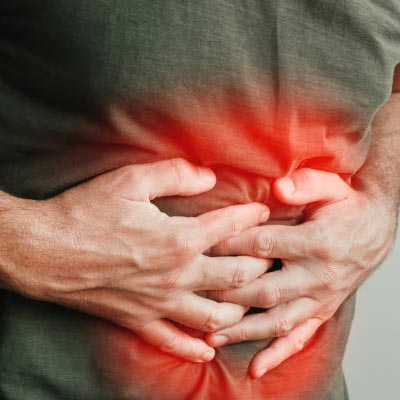What is Gastritis?
Gastritis refers to the inflammation, irritation, or erosion of the stomach lining. This condition can develop suddenly (acute gastritis) or gradually over time (chronic gastritis). The stomach lining contains special cells that produce acid and enzymes to help break down food, while also creating mucus to protect the lining from acid damage. When this protective barrier becomes damaged or weakened, digestive juices can inflame and damage the stomach lining.
Causes of Gastritis
- Helicobacter pylori (H. pylori) bacterial infection
- Excessive alcohol consumption
- Chronic vomiting or stress
- Regular use of NSAIDs (aspirin, ibuprofen)
- Autoimmune disorders
- Bile reflux disease
- Other infections (viral or fungal)

Symptoms of Gastritis
Patients may experience abdominal pain, bloating, nausea, vomiting, indigestion, loss of appetite, or black tarry stools. In severe cases, gastritis can lead to stomach ulcers and increased risk of stomach cancer.
Treatment Options
Treatment depends on the specific cause but may include antacids, proton pump inhibitors, antibiotics for H. pylori infection, or dietary modifications. Avoiding irritants like alcohol, spicy foods, and NSAIDs is typically recommended.
What is an Ulcer?
Peptic ulcers are open sores that develop on the inner lining of the stomach (gastric ulcers) or upper portion of the small intestine (duodenal ulcers). These occur when stomach acid erodes the protective mucous layer of the digestive tract. Unlike gastritis which involves general inflammation, ulcers are localized erosions that penetrate deeper into the stomach or intestinal wall.
Types of Peptic Ulcers
- Gastric ulcers: Occur on the inside of the stomach
- Duodenal ulcers: Occur on the inside of the upper portion of small intestine
- Esophageal ulcers: Occur in the esophagus (less common)
Primary Causes
The majority of ulcers are caused by H. pylori infection or long-term use of NSAIDs. Contrary to popular belief, stress and spicy foods don't cause ulcers but can aggravate existing ones.
Ulcer Symptoms
The most common symptom is burning stomach pain that may worsen when your stomach is empty. Other signs include nausea, vomiting blood, dark blood in stools, unexplained weight loss, and appetite changes.
Complications
Untreated ulcers can lead to internal bleeding, perforation (hole through stomach wall), gastric outlet obstruction, and increased cancer risk in gastric ulcers.
Diagnostic Methods
Diagnosis may involve endoscopy, H. pylori testing (blood, stool, or breath tests), or imaging studies like X-rays or CT scans when complications are suspected.
Brundavan Hospital: Premier Gastrointestinal Care in Kakinada
Brundavan Hospital has established itself as a leading healthcare institution specializing in gastroenterology services in the Kakinada region. With state-of-the-art diagnostic equipment and a patient-centric approach, the hospital provides comprehensive care for all gastrointestinal conditions including gastritis, ulcers, GERD, IBS, and more complex digestive disorders.
Why Choose Brundavan Hospital for Gastric Treatment?
- Advanced endoscopic procedures including gastroscopy and colonoscopy
- Modern diagnostic facilities for accurate detection of gastrointestinal conditions
- Multidisciplinary approach to digestive health
- Personalized treatment plans for each patient
- Focus on both medical and lifestyle interventions
- Comprehensive follow-up care programs
Specialized Gastro Services
The hospital offers complete diagnostic and therapeutic services for upper and lower gastrointestinal conditions. From basic acid reflux to complex inflammatory bowel diseases, patients receive expert care tailored to their specific condition and health status.
Dr. Srinivas Bikkina: Leading Gastroenterologist in Kakinada
Dr. Srinivas Bikkina is a highly skilled gastroenterologist renowned for his expertise in managing complex digestive disorders. With extensive clinical experience, Dr. Bikkina has helped numerous patients find relief from chronic gastric conditions through accurate diagnosis and evidence-based treatment approaches.
Clinical Expertise
Dr. Bikkina specializes in the diagnosis and management of various gastrointestinal conditions including:
- Acid-peptic diseases (gastritis, ulcers, GERD)
- Inflammatory bowel diseases (Crohn's, ulcerative colitis)
- Liver and pancreatic disorders
- Functional gastrointestinal disorders
- Gastrointestinal cancers
Patient-Centered Approach
Known for his compassionate care, Dr. Bikkina emphasizes thorough patient education, ensuring individuals understand their condition and treatment options. His approach combines medical treatment with necessary lifestyle modifications for optimal digestive health.
Preventing Gastric Problems
Maintaining good digestive health can prevent many gastric issues. Here are evidence-based recommendations:
Dietary Recommendations
- Consume a high-fiber diet with plenty of fruits and vegetables
- Limit intake of spicy, acidic, or fried foods
- Stay hydrated with adequate water intake
- Practice portion control and avoid overeating
- Limit caffeine and alcohol consumption
Lifestyle Modifications
- Maintain a healthy weight
- Exercise regularly to promote digestion
- Manage stress through relaxation techniques
- Avoid smoking and tobacco products
- Practice good food hygiene to prevent infections
When to Seek Medical Help
Consult a gastroenterologist if you experience persistent symptoms like abdominal pain, difficulty swallowing, unexplained weight loss, blood in vomit or stool, or if symptoms interfere with daily activities. Early intervention can prevent complications and promote faster recovery.
Advanced Treatment Approaches
Modern gastroenterology offers various effective treatments for gastric conditions:
For Gastritis and Ulcers
- Proton pump inhibitors to reduce stomach acid
- Antibiotic therapy for H. pylori infection
- Mucosal protective agents
- Endoscopic therapy for bleeding ulcers
- Diet and lifestyle counseling
Diagnostic Advancements
Modern diagnostic tools allow for accurate identification of gastric problems:
- High-resolution endoscopy
- Capsule endoscopy
- Advanced imaging techniques
- Biomarker testing
Comprehensive Gastric Care in Kakinada
For residents of Kakinada and surrounding areas seeking expert care for gastritis, ulcers, or other digestive disorders, Brundavan Hospital and Dr. Srinivas Bikkina offer world-class medical services with personalized attention. Combining medical expertise with compassionate care, they provide effective solutions for both common and complex gastrointestinal conditions.
Remember that timely diagnosis and proper treatment can prevent complications and restore digestive health. If you're experiencing persistent gastric symptoms, consulting with a specialist can help identify the underlying cause and develop an appropriate treatment plan tailored to your specific needs.
